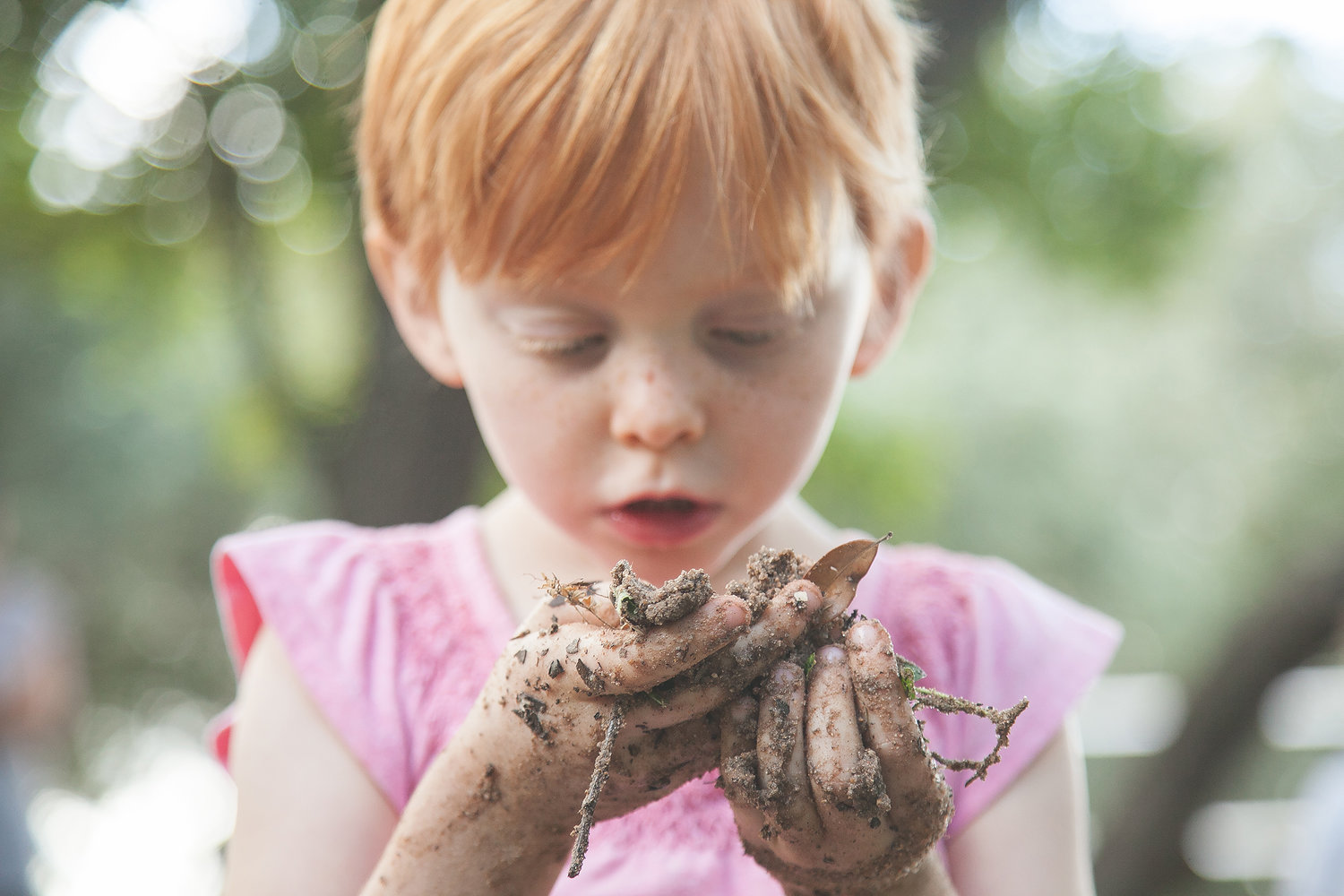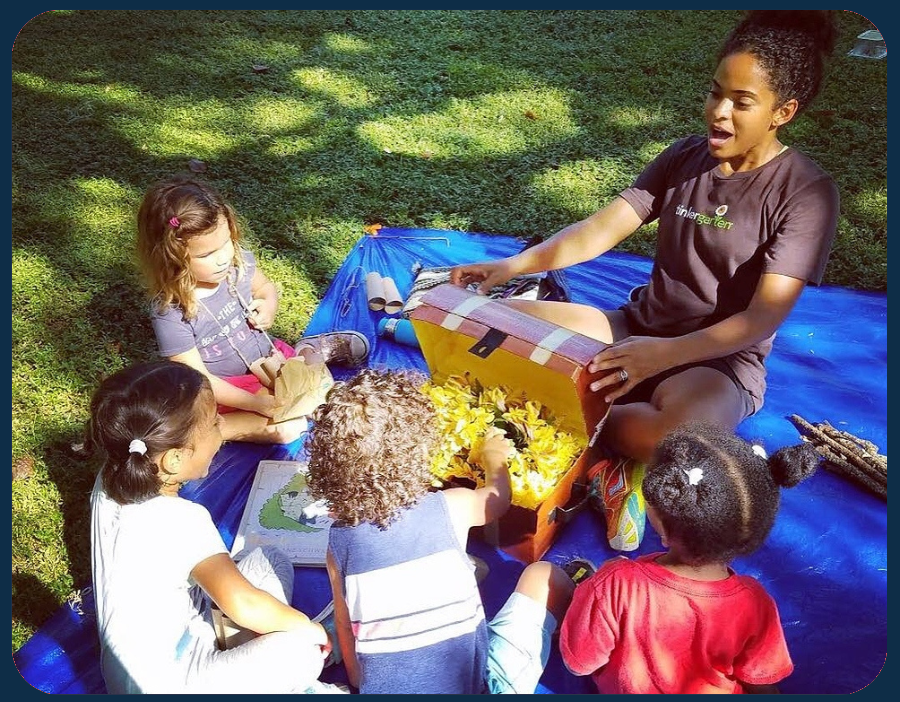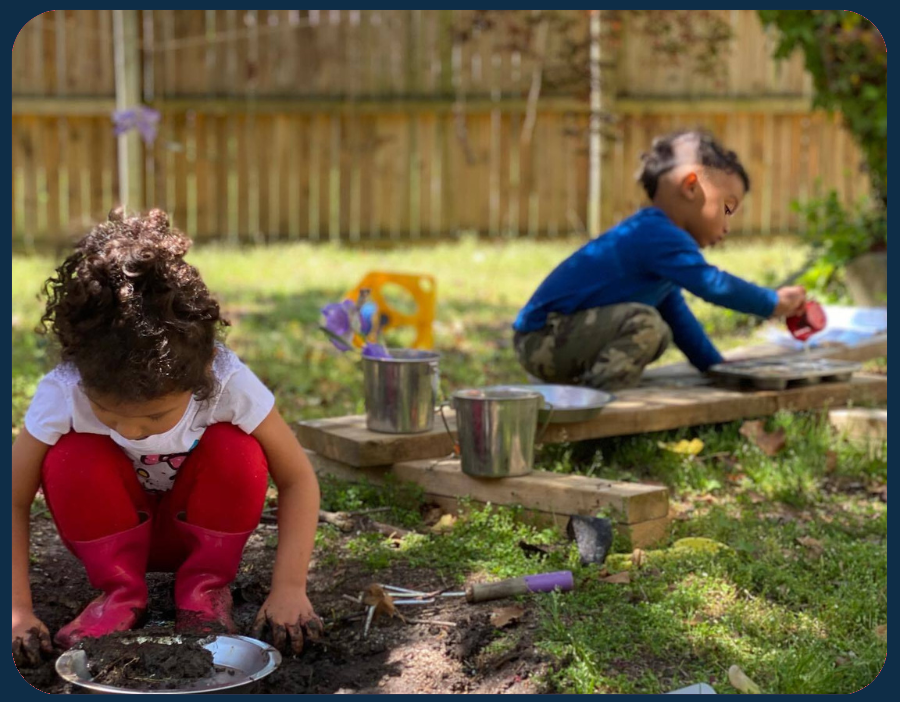I’ve met few parents who do not notice a difference in their children (or themselves) when they spend time in nature. 30 minutes of kids’ screen time and 30 minutes of green time yield very different results. My kids are more peaceful, energized and happy when they are outdoors, and those effects carry over long after they come back inside. For adults, exploring nature with children reaps rewards, too.
When I worked in schools, I saw the same positive shift in students. The research continues to mount, as numerous studies link exposure to nature to enhanced physical, social and cognitive outcomes for kids (read more about how nature affects kids’ health and wellness). If you like to geek out, Children and Nature Network does a bang up job of cataloging the research.
We know nature gives kids many benefits, but what makes nature the ideal environment for learning? These days, many of us hardly have time to read an in-depth article, never mind comb over research. In digest form, here are our favorite answers to this favorite question.

Nature is An Awesome Combo
When I was a classroom teacher, if you had promised me a way to make my classroom both calming and stimulating at the same time, I would have done whatever you suggested. That combination is exactly what nature offers.
Nature is calming: Many of us experience and recognize the calming effects of nature. Biologist Edward O. Wilson may have explained it best in his biophilia theory—that humans are innately drawn to connect and commune with nature. Just being in a natural environment makes us feel centered, at ease and at home. Studies also show that being in nature, or even viewing nature scenes (for times when you need to bring the outdoors in), can reduce negative emotions like anger and fear while increasing positive feelings. As a teacher and a parent, I just sense that children can focus and engage more when calm, comfortable and joyful. Science backs that up, with brain imaging linking a learning environment that supports positive emotions to more effective learning.
Nature is stimulating: Natural environments not only soothe and center, they also stimulate. Outdoor classrooms present learners with captivating sights, smells and textures, stimulating all of the senses. Sensory engagement could not be more critical to early learning—the more kids engage their senses and develop their sensory skills, the more they increase their capacity to take in and turn new information into knowledge.
In an outdoor classroom, the scene is ever changing. Nature’s play objects vary in shape, size and texture, offering endless possibilities for play and learning. It seems impossible to build a playground more engaging or to stock an indoor classroom with such a rich set of learning tools.
In response to this stimulating environment, children’s play in nature is inherently more imaginative, self-directed, and free. Children make messes (mud kitchens, anyone?), experiment and investigate readily, and, in turn, develop essential learning skills. Dr. Kenneth Ginsberg of the AAP eloquently described this:
Nature places virtually no bounds on the imagination and engages all of the senses. For all children, this setting allows for the full blossoming of creativity, curiosity, and the associated developmental advances.
An outdoor classroom has many additional benefits, including opportunities for children to take important risks (and fail), develop empathy and hone a sense of wonder! Join a Tinkergarten class near you to learn more!



